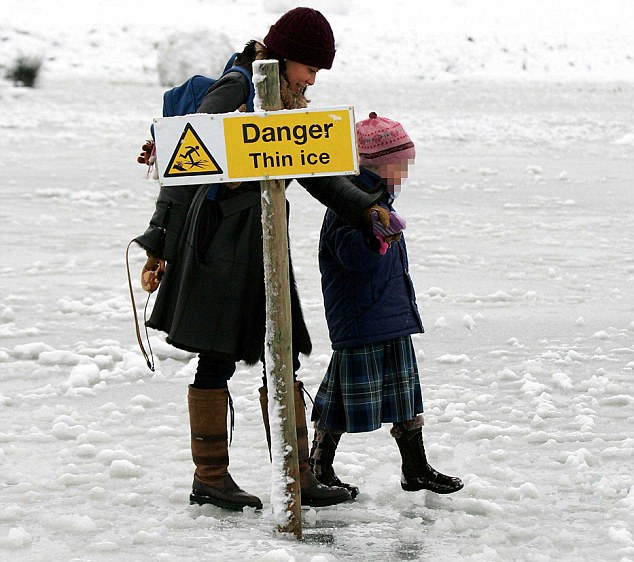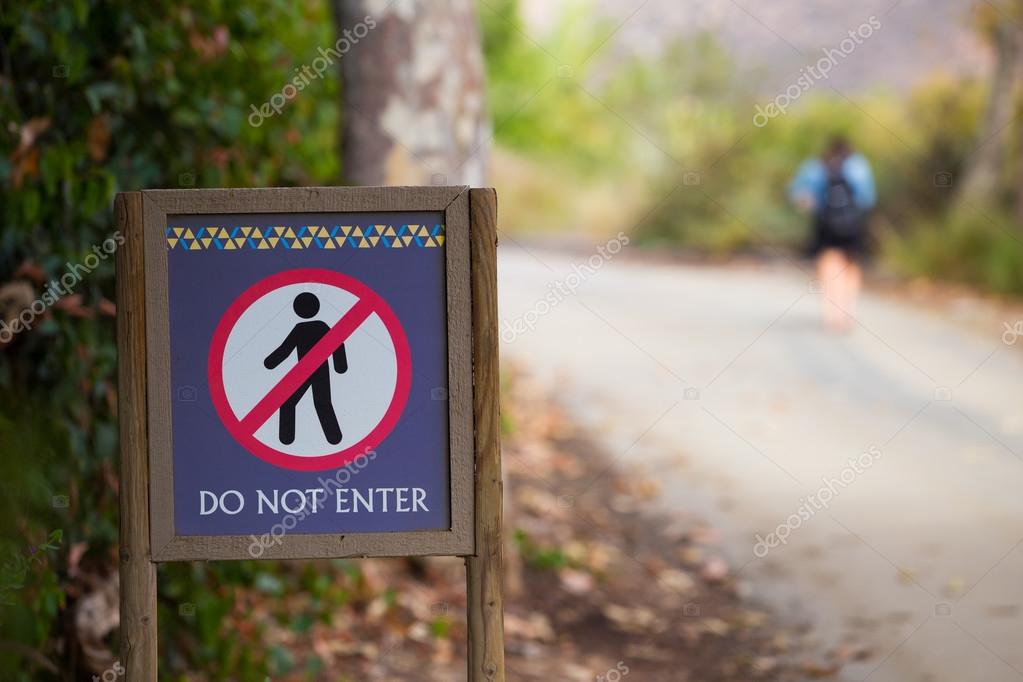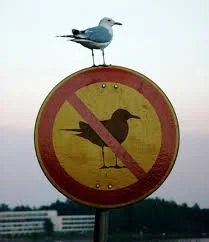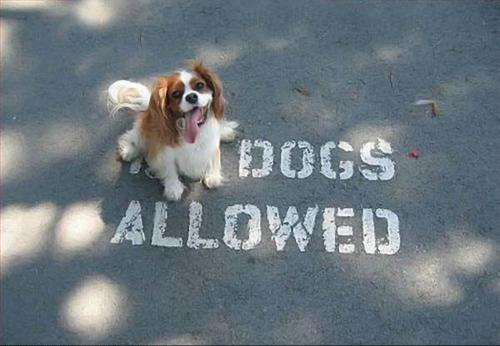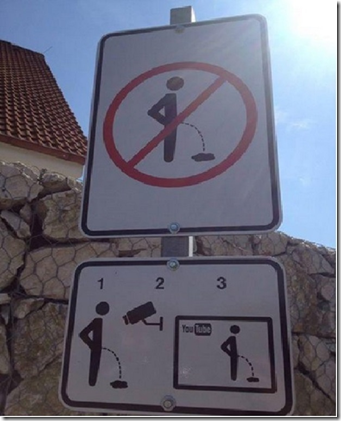Signs should not have attitudes. They should also be grammatically correct.
/This is a sign in the parking lot of a local Starbucks. It's a stupid sign.
Signs should inform and instruct. They should not have an attitude, and this one has an attitude.
See it?
After politely but sternly warning that "Continued use of these spaces will result in your car being towed," there is a pause, indicated by a dash, and then sign shouts at the reader:
" - at owners expense!!!"
Read it aloud. Begin with the polite but firm tone of most signs, followed by a pause, and then a melodramatic attempt to shock and awe the reader with surprise, anger, and volume.
- at owners expense!!!
"Oh no! At the owner's expense? In that case, I'd better not park here. I was thinking about ignoring this stupid sign and leaving my car here even though I'm not a customer, but then that sign yelled at me. It sounded so forceful and authoritative. So now I've changed my mind. I'm moving my car right now and transforming myself into a law-abiding citizen. Thanks, sign!"
Stupid.
Added to the stupidity of this attempt at attitude is (of course) the stupidity of the missing apostrophe in word "owners" and the added stupidity of three exclamation points.
Volume does not increase in the reader's mind with each added exclamation point. Sentences do not change with additional marks of punctuation. One exclamation point is always enough. The use of three exclamation points indicates one of two things:
- You are under the age of 12.
- You are a moron.
In this case, I suspect the latter.
It's hard to make so many mistakes over the course of three simple words, and yet this sign manages to do just that. Remarkably so.
Among my many business ideas is an online service where you can send me the text of your planned sign so I can review and eliminate any grammatical mistakes or lack of clarity. Spare yourself the embarrassment of a sign like this with the simple click of a button.
Not only would it help businesses look more competent and professional, but it would make the world a better place.
But I suspect that the kind of person who makes this sign is the kind of person who doesn't know they need help.
Being a moron is one thing. Knowing you are a moron is quite another.


